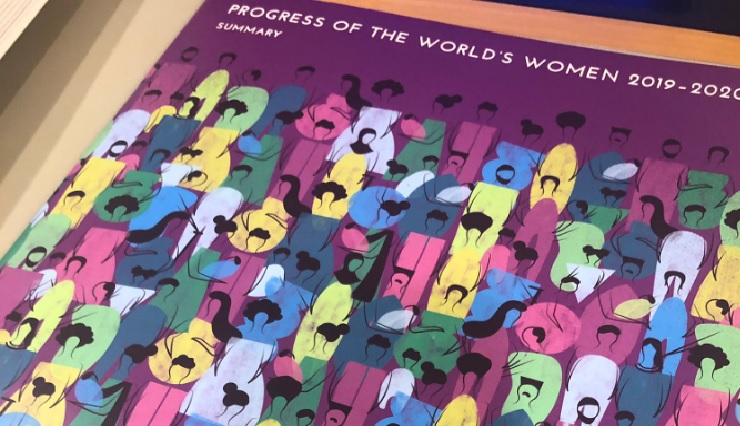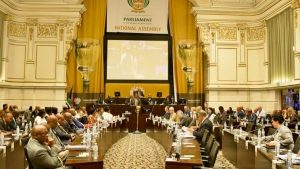“Around the world, we are witnessing concerted efforts to deny women’s agency and their right to make their own decisions in the name of protecting family values.” That was the message delivered by the Head of UN Women at the launch the organisation’s flagship report ‘Progress of the World’s Women 2019-2020.’
The 2019’s report is titled. “Families in a Changing World” and puts forth a policy agenda to end gender inequalities within families across the globe. It is a report that acknowledges a rapidly changing world by scrutinising the notion of what family means and urging the shaping of policies and legislation that reflects a 21st Century reality.
“We actually want governments to revisit their policies in order to make sure that the policies recognise the reality to the extent that the definition of a family in many countries is still a narrow nuclear family – two parents, children, maybe a cat. The reality is that is just true of one third of families. There are all these other types of families. So, we actually want government to dis-aggregate the information and be granular when they make policies so that we don’t have two-third of the people in any society that is falling between the cracks because there’s a one-size-fits-all policy approach,” says UNWomen’s Executive Director Dr Phumzile Mlambo-Ngucka.
The report confirms that families are diverse and changing and lays out the various permutations of what constitutes a family including based on gender relations. It emphasises the need for laws that promote equality within the family, recognising diversity and prohibiting violence against women. The report urges high quality public services critical for supporting families and gender equality and calls for policies that grant women access to an adequate independent income to underpin their rights within families, among others.
“The point of the report is not really to say we need to have one form of family or another. Human rights principles do not define a particular form of family that is better or worse. The point that the report is saying is that women’s rights, women’s choices, women’s voices – those need to be enabled regardless of the type of family that they live in. We need to live with the reality of diversity of families and really focus on the factors that can enable women to enjoy their rights regardless of the family type. I think that’s really fundamental to underline, in terms of the philosophy of the report, if you like,” says Chief of Research at UN Women Shara Razavi.
Razav also points out that for a significant portion of the world’s population, family law is still based wholly on religious precepts, laws that are viewed as quite discriminatory towards women – one’s that allow for marital rape, child marriage and unbridled polygamy; laws that permit a husband to discipline his wife, or the Triple Talaq – a form of Islamic divorce that allows a Muslim man to legally divorce his wife by stating the word ‘divorce’ three times in oral, written or more recently in electronic form.
“Almost all Muslim family laws in the world today are based on jurisprudence written by respected and competent classical jurists who lived many hundreds of years ago. They created these legal rulings based on their own reading of the Muslim scripture for their own time and place. Their jurisprudence is not divine and unchangeable, rather it is a human understanding of the divine, which can and should change as time goes by,” says board member with the Musawa International Movement for Equality and Justice in the Muslim Family, Marwa Sharafeldin.
Launch of the UNWomen Progress of the World’s Women 2019-2020 report happening now – Families in a changing World view the report https://t.co/dwEultzNaH pic.twitter.com/nHI6MCLnHd
— Tolu (@LewisTolulope) June 25, 2019






